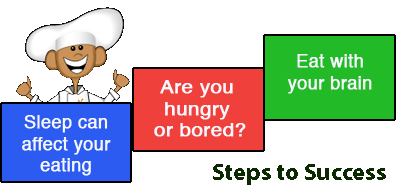
Many adults do not know or appreciate the role of restorative sleep in achieving and maintaining an appropriate weight. Getting the right amount of sleep has many physiological effects on the body, but the role in weight maintenance is in controlling two appetite hormones, Ghrelin and Leptin. Ghrelin is the hormone secreted when the stomach is empty telling us to eat. Leptin is secreted when the stomach is full and signals us to stop eating. When we do not get the requisite eight hours of sleep per night, there is more Ghrelin in the bloodstream increasing hunger and attraction to high carbohydrate, calorie dense foods. There is also less Leptin available to put the brakes on eating when we are satisfied.
Sixty-five percent of Americans are overweight or obese and separate surveys demonstrate that 63% of adults in the US do not get the recommended eight hours of sleep per night. Could there be a correlation? An interesting “sleep diet” study showed that all  other things being equal, adults who increased their sleep to eight hours and did nothing else, lost weight compared to those who slept their usual 6.9 hours per night.
other things being equal, adults who increased their sleep to eight hours and did nothing else, lost weight compared to those who slept their usual 6.9 hours per night.
A lack of sleep could be affecting our children in similar ways, especially if you believe that eight hours per night is a good amount of sleep for a child. As you can see from the chart below, children have varying sleep needs depending on their age, and all children need more than eight hours of sleep.
|
Age |
Sleep Requirements |
|
Infants |
14-15 hours |
|
Toddlers |
12-14 hours |
|
Preschoolers |
11-13 hours |
|
School Aged Children |
9-11 hours |
|
Teenagers |
9-10 hours |
Other benefits of a regular sleep schedule include increased academic performance and a lower lifetime incidence of anxiety disorders and depression. So parents, putt your children on the “Sleep Diet” and help them achieve peace body, mind, and spirit.
0 Comments